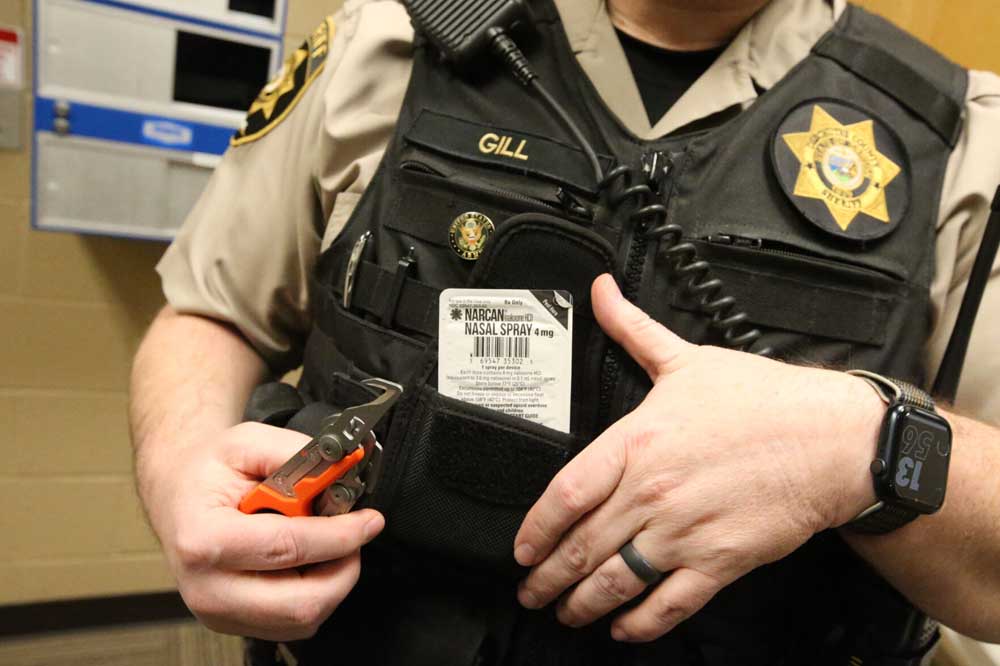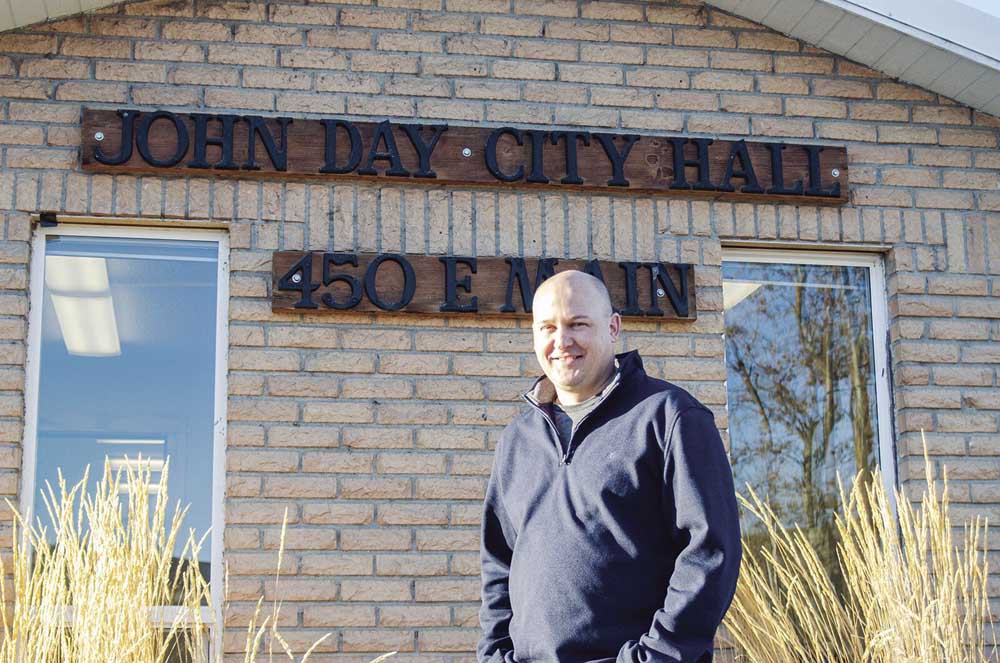A growing problem: How Central Oregon’s jails face mental illness, addiction crisis
Published 5:45 am Sunday, January 7, 2024

- Deschutes County Sheriff's Office Lt. Michael Gill carries safety shears and Narcan, when working at the Deschutes County Jail in Bend on Dec. 18, 2023.
BEND — As Oregon faces compounding problems with addiction and mental illness, Central Oregon jails have increasingly become de facto treatment facilities, raising concerns among legal experts and jail staff about the safety and rehabilitation of inmates.
At the Deschutes County Jail, suicide attempts have more than doubled, from six in 2021 to 13 in 2023. Last year, there were more overdoses — nine — than the previous two years combined. In February, one inmate died by suicide.
At the Crook County Jail, which has 86 beds, staffers have placed 64 people on suicide watch over the past two years, the jail commander said.
“It seems to be growing and getting more extreme,” said Lt. Drew Rasmussen, Crook County’s jail commander.
Bolstering safety
Despite limited resources, jail staff are taking a variety of measures to bolster safety and treatment, adding behavioral health staffers and corrections deputies, wellness classes and keeping on hand an ample supply of Narcan, which curbs the effects of an overdose.
But jail officials and attorneys say the facilities are full of inmates repeatedly booked for crimes that result from their severe mental health issues. Their charges range from breaking a window to screaming in the street and holding up traffic to stealing food at a grocery store.
Some struggle with schizophrenia, treatment-resistant depression and traumatic brain injuries and do not understand what they’ve done. Many take months to stabilize enough to participate in their own defense, leaving them in jail for longer than it would ordinarily take for them to have their case handled in court, said Joel Wirtz, a Bend-based defense attorney.
And with few local psychiatric resources, a lack of housing and a state hospital system that can’t hold them all, they are trapped in a revolving system with nowhere else to go.
“Jails are not meant to be psychiatric hospitals,” said Wirtz. He added, “It’s built for punishment for criminals. … We’re just warehousing the mentally ill in the jail.”
Mixing criminals with the mentally ill
The effects of this crisis can be brutal.
In December 2022, a Deschutes County Jail inmate facing a fireworks violation was beaten by an inmate struggling with substance abuse, injuring his head, neck and ear, according to records filed by the man’s attorney. He alleges he wasn’t taken to the hospital for 75 days. In March, he was diagnosed with ear and skull injuries at the Oregon State Hospital, a public psychiatric hospital.
In February 2023 at the Deschutes County Jail, one incarcerated woman used a bedsheet, hook and stool in her cell to take her own life, according to records filed by a family member’s attorney.
In each case, people have filed a tort claim against the county, indicating they plan to sue for negligence.
Michael Shults, the Deschutes County Jail captain, said suicide prevention is “the number one thing on my mind every night.”
Deschutes County Jail officials have purchased new bunk beds, shower hooks and desks, and adjusted facilities specifically to prevent suicide, paying an estimated $65,000 in 2023 alone, officials say. In recent years, they have doubled their behavioral health staff, from two to four, added a social worker and increased the number of designated mental health units from one to three.
Even the cracks between the furniture and the walls have been sealed by caulk to prevent self-harm.
“Nothing’s suicide-proof,” said Lt. Michael Gill, of the Deschutes County Sheriff’s Office. “But it’s prevention.”
‘You need a hospital, not a jail’
The Crook County Jail has made similar changes, installing moveable shower hooks and providing additional privileges — thicker mattresses, additional food — for inmates who cooperate well with treatment.
Last year, the county granted a sheriff’s office request for additional jail staff, providing funds for eight positions, including six sworn deputies, Rasmussen said. Four of the the jail’s 26 positions, however, are currently unfilled and at times staff can be overwhelmed by the influx in mentally ill inmates.
“You get these people and you say, man, you need a hospital, not a jail,” said Rasmussen, who added: “There’s just nowhere else for some of these people to go.”
Rasmussen is not alone in questioning whether jail is the right place for people struggling with mental illness, and he’s among a growing chorus of officials saying additional psychiatric treatment beds are needed to get people local help.
At the start of this year, 88 defendants in Deschutes County were mentally unfit to aid and assist in their own defense, the highest total in at least six years. Of those, 24% were at the Oregon State Hospital, 68% were receiving community services and 8% remained in the jail.
Wirtz argued that the Oregon Legislature needs to reform its civil commitment law to make it easier for people to be forced to receive mental health treatment so they don’t harm themselves or others and wind up in jail for longer stints. And when they’re released, he said, there needs to be more treatment beds so they get help.
Making Narcan accessible
“Sometimes we have people who are in and out so frequently that we’re their only consistent medical care,” said Eden Aldrich, the medical director for the Deschutes County Sheriff’s Office.
Now, they’re installing Narcan in open dorms so inmates can provide life-saving measures before staff get there. About a month ago, the jail’s nursing staff took over the job of screening at-risk inmates for their medical needs when they’re booked in the jail.
But Aldrich said that, lately, they’ve been understaffed, and her team still could use six more staffers to meet the need.
“We want to keep people as healthy as possible,” Aldrich said.





